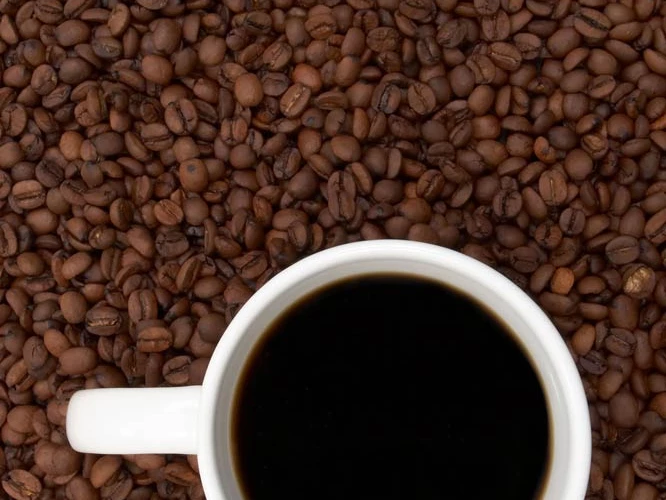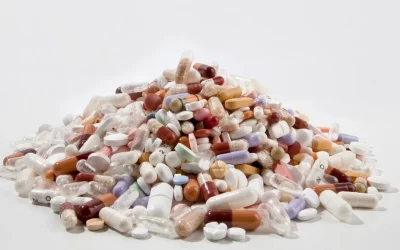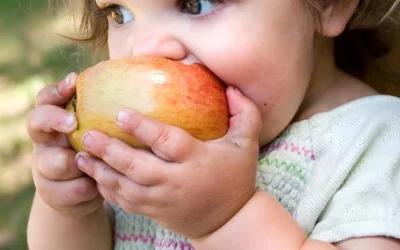Coffee – It’s good for you, it’s not good for you, it’s good for you….and back and forth we go. What’s my take on coffee? Read on to find out.
Coffee for me is more than just the caffeine (since I literally become adapted to the caffeine so quickly I don’t even notice the stimulating effect….unless I don’t drink it, then the headaches come). Coffee for me is comforting, it tastes wonderful (without anything in it), and is more of a morning ritual than anything.
So what’s the big deal about coffee? Is it dehydrating? Is it bad for you? Does it cause cancer? Many studies have shown the coffee/caffeine is okay to have in moderate doses and actually touts health benefits – overdo it and you could run into trouble.
What’s a moderate dose? Two to three 8-oz cups per day, or roughly 200-300mg caffeine, give or take.
However, we know that too much caffeine can cause side effects such as impaired sleep, a “speedy” or jittery feeling, and even anxiety. Heartburn, frequent urination (because caffeine is a diuretic), diarrhea, and palpitations are problematic for some as well when too much is consumed. As for cancer, in June 2016 the World Health Organization (WHO) removed coffee from it’s list of potentially carcinogenic foods and noted that it could be potentially protective against cancer of the uterus and liver (yay!).
It is important to note that the studies done are referring to plain, black coffee. Adding a bunch of sugar and creamers can make the wonderful drink less healthy due to the added calories and saturated fat.
As for other health benefits. Studies have found that coffee drinkers may have a reduced risk of:
- cardiovascular disease (including heart attack, heart failure, and stroke)
- type 2 diabetes
- Parkinson’s disease
- uterine and liver cancer
- cirrhosis
- gout
- lower risk of early death
Is coffee okay for athletes to drink and can it help their performance?
YES!! Obviously too much caffeine at one time can cause a failed drug test (for those athletes who are submitted to drug testing as part of their sport) with urine levels of caffeine greater than 15mcg/ml, which is the equivalent of consuming 500mg caffeine or 6-8 cups of coffee 2-3 hours prior to drug testing. At moderate doses, athletes can safely use coffee to boost their training efforts.
Be strategic if you’re using coffee for a training boost. It’s best consumed 30-60 minutes prior to training since the peak rate of caffeine absorption in the body occurs about 30-min after ingestion. Effects can last up to 4 hours, depending on your body’s ability to metabolize the caffeine (and everyone is different). Be careful though – coffee could cause stomach cramping and diarrhea if the athlete is not accustomed to it, so it’s better to be cautious than over-zealous. Lastly, I wouldn’t recommend drinking it for an afternoon boost (or after 12pm in general). Reason being it can take the body up to 8-hours to fully metabolize caffeine and you don’t want it to hamper your sleep. Drinking it too late in the day can make it harder to fall asleep and harder to stay asleep, making your nights restless and the next day even more tiring.
But doesn’t coffee dehydrate you?? Numerous studies have shown that coffee and tea do not contribute to dehydration. This is a controversial topic, but science is science. Yes, caffeine is a mild diuretic. However, drinking it in the form of tea or coffee doesn’t directly contribute to dehydration. Case in point: for every 1 mg caffeine consumed, the body excretes 1 ml of water. One cup, 8-oz coffee, contains 250 ml water and roughly 100mg caffeine. The 100mg caffeine might cause 100ml water to be excreted but you still absorb the other 150ml of fluid, thus contributing to a positive fluid balance. The overall fluid loss is minimal and short-term. Continue to hydrate the rest of the day with water and other fluids and you’ll be in good shape.
In conclusion, coffee can be a healthy addition to your daily diet and give you that extra boost in your workout, just be careful to not overdo it. Do you have to drink coffee even if you don’t like it? Nope. I don’t ever recommend eating/drinking anything you truly don’t enjoy. This also means you do not have to use coffee for a training boost – many athletes do just fine without any added caffeine. Speaking of caffeine in general, supplements and energy drinks with caffeine are a whole other topic that will be covered at a later date.
For another great resource on caffeine and performance, read this: http://www.sportsrd.org/wp-content/uploads/2015/01/Caffeine_and_Athletic_Performance_WEB.pdf
Great resources and info on caffeine and hydration:




